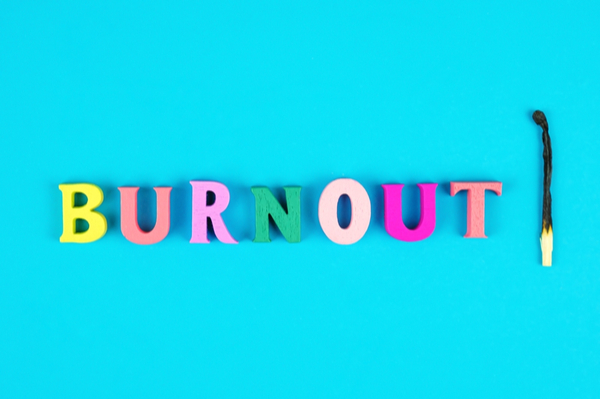With October being regarded as Mental Health Month, and over two in five people experience a mental health condition at some point in their life, there are plenty of reasons to enhance understanding and support to generate wellness.
Taking responsibility for managing our mental health and wellbeing is critical to getting through any tough time. One of the most important things you can do is to be patient with yourself. Learning how to deal with mental stress can take time. We’ve provided some strategies to consider below.
Exercise regularly
Many of us may find regular exercising slipping off our daily to-do lists. But exercise isn’t just about being physically active (although that’s important too); even just going for a walk every day can help improve your outlook. Research from the Black Dog Institute has found that adding even a small amount of exercise into your day can be highly effective at fighting depression.
If you’re a regular exerciser, you’re probably familiar with the endorphin rush and subsequent improved mood you often experience after a workout. That’s because exercise provides a wide range of mental health benefits, from building resilience to distracting you from negative thoughts and improving memory and sleep.
The good news is, exercise can be as simple as walking to the shops, doing some housework, or tending to your garden. Regular exercise of any intensity can prevent future depression, regardless of your age or gender.
Talk about how you’re doing
It is not unusual to have a range of feelings to deal with in everyday life. Many of us could be feeling anxious or experiencing depression or worry about a range of issues including employment, health, family, or money.
Mental health difficulties can impact anyone, so if you’ve been struggling, it’s important to talk to those around you and ask for help. While it can feel difficult, remember that you are not alone in what you are going through. Speaking to your family and friends, or even an employer can assist you in improving your wellbeing. You may even want to take some leave from work or reduce your workload to help with recovery. Don’t be ashamed to rely on your friends and family to help you get through.
Looking after yourself includes eating well
Mental exhaustion can make it difficult to shop and prepare meals for yourself but eating a poor diet supplemented with alcohol is a recipe for a longer recovery. A diet rich in vitamins and minerals will make you feel better and will help with building up your depleted immune system.
There is now evidence that gut health is linked to mental health so eating foods that are good for your gut could be helpful. Remember to get a little sunshine each day to boost your vitamin D. Create a daily schedule that includes self-care so there’s always time for your health.
Do things you enjoy
Carve out time to pursue the things that make you happy. Perhaps it’s playing a musical instrument, doing yoga, reading, photography, playing video games — whatever makes you feel good. Allowing space for the things you enjoy can lift your mood and give you a much-deserved break.
Reduce your media consumption
Staying up to date is good, but it’s important to give yourself a break from the news and social media, especially when if it causes you to feel anxious, depressed, or overwhelmed.
Try regular meditation
Try to think positively and envisage a better future for yourself. Surround yourself with supportive and positive people who can help you maintain a positive outlook on life.
Mindfulness and meditation has been proven to help with anxiety, stress and depression and are worth looking into. It will keep you focussed on practical, positive thought patterns and activities.
Seek out support if you need it
Help is here if you need it. If your mental health is suffering, chat to your doctor about a mental health plan. There are also a number of organisations who can help to support you in managing your wellbeing.
-
- Lifeline Australia – Provide access to 24 hour crisis support and suicide prevention services.
Website: www.lifeline.org.au Telehone: 13 11 14
- Lifeline Australia – Provide access to 24 hour crisis support and suicide prevention services.
-
- Beyond Blue – Provides information, and support for depression, anxiety and suicide prevention.
Website: www.beyondblue.org.au Telephone: 1300 224 636
- Beyond Blue – Provides information, and support for depression, anxiety and suicide prevention.
-
- Headspace – Provides young people with information and resources on mental health, physical health, work and study support, and alcohol and other drug services.
Website: www.headspace.org.au Telephone: 1800 650 890
- Headspace – Provides young people with information and resources on mental health, physical health, work and study support, and alcohol and other drug services.
-
- 1800 Respect – Provides 24 hour support to people impacted by sexual assault, domestic or family violence and abuse.
Website: www.1800respect.org.au Telephone: 1800 737 732
- 1800 Respect – Provides 24 hour support to people impacted by sexual assault, domestic or family violence and abuse.
-
- Mindspot – Provides free effective internet delivered psychological assessment and treatment for stress, anxiety, worry, depression, low mood, OCD and trauma (PTSD).
Website: www.mindspot.org.au Telephone: 1800 614 434
- Mindspot – Provides free effective internet delivered psychological assessment and treatment for stress, anxiety, worry, depression, low mood, OCD and trauma (PTSD).
-
- Kids Helpline – Provides private and confidential 24/7 phone and online counselling service for young people aged 5 to 25.
Website: www.kidshelpline.com.au Telephone: 1800 55 1800
- Kids Helpline – Provides private and confidential 24/7 phone and online counselling service for young people aged 5 to 25.
-
- National Debt Helpline – Helps people tackle their debt problems.
Website: www.ndh.org.au Telephone: 1800 007 007
- National Debt Helpline – Helps people tackle their debt problems.
We’re here to support our learners and clients during any personal challenges you may face. If you have any questions please contact us.




